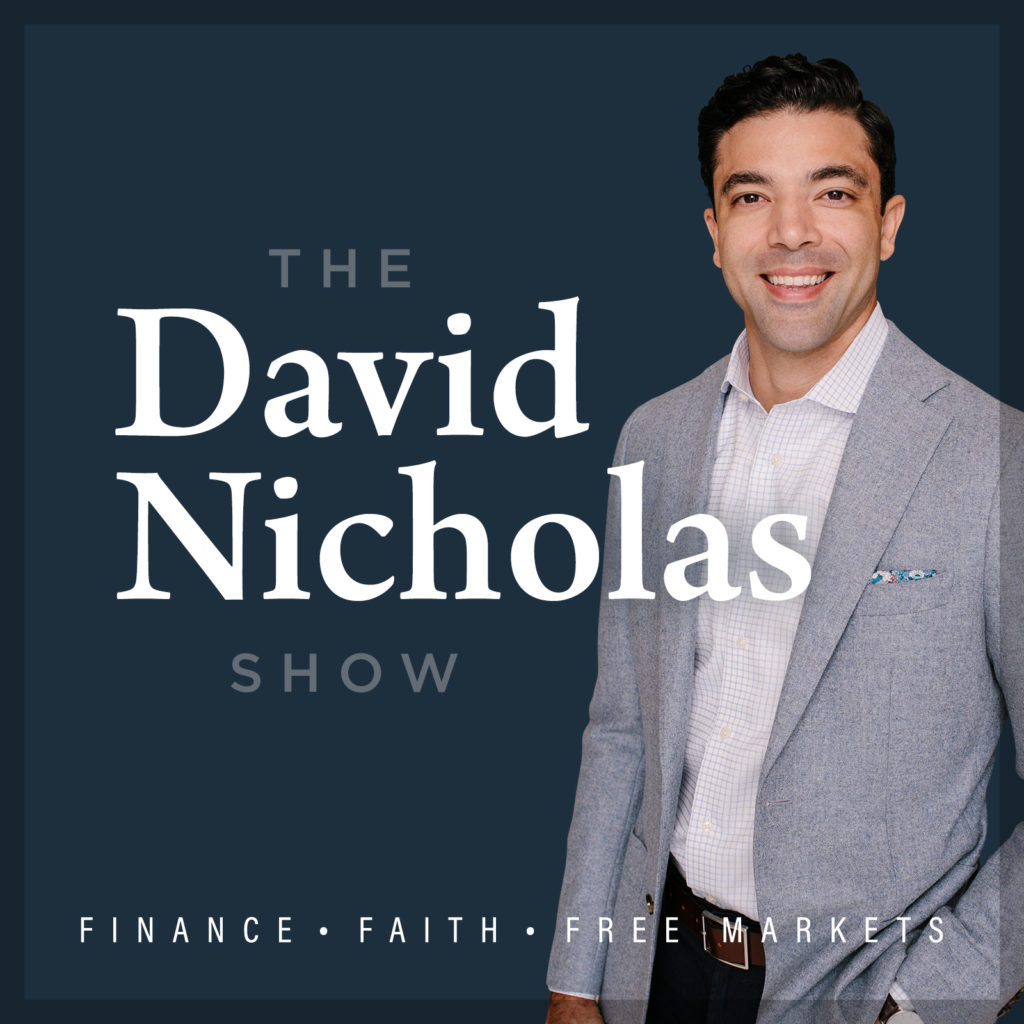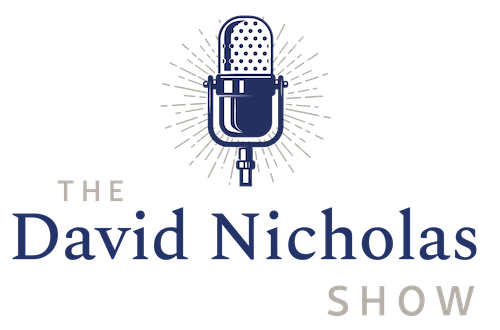Destroying a Republic
Subscribe

How to destroy a Republic
Neglect Virtue
Dismantle the Family
Rule by Majority
Erase the Middle Class
Today’s podcast is about the writings and philosophy of Aristotle. Who he was. Why his writings matter. And what they can reveal to us about todays politics and our structure of government.
Founding Fathers
As an American, an important note is that our Founding Fathers studied Aristotle
In a letter from Thomas Jefferson to Henry Lee in May of 1825, he says “all it’s authority rests then on the harmonising sentiments of the day, whether expressed, in conversations in letters, printed essays or in the elementary books of public right, as Aristotle, Cicero, Locke, Sidney
Not just Aristotle, they studied the writings of Aristotle, Cicero, Locke, Sidney
John Adams wrote that the principles of the American Revolution “are the principles of Aristotle and Plato”
But it is also interesting to note, that studying these ancient philosophers was not foreign to many like it is today, rather it was a common practice for 18th Century Americans to be well versed in the works of Aristotle, Plato, Cicero, etc
In Mcdonalds 1988 book Requiem he says:
“When an American student entered college (usually at age 14 or 15) in the time leading up to the American revolution, he would need to prove fluency in Latin and Greek. He would need to “read and translate from the original Latin into English ‘the first three of [Cicero’s] Select Orations and the first three books of Virgil’s Aeneid’A-Knee-Ed and to translate the first ten chapters of the Gospel of John from Greek into Latin, as well as to be ‘expert in arithmetic’ and to have a ‘blameless moral character.’” [Forrest McDonald 80s, Requiem, pp. 1-2]
“Furthermore, Americans who had had any schooling at all had been exposed to eight- and ten-hour days of drilling, at the hands of stern taskmasters, in Latin and Greek. This was designed to build character, discipline the mind, and instill moral principles, in addition to teaching language skills. (Educated French military officers who served in the United States during the Revolution found that even when they knew no English and Americans knew no French, they could converse with ordinary Americans in Latin)
In 1820 a writer of the Cincinnati Western Review warned “Even the settlers of the so-called “wild west” understood this. “Should the time ever come when Latin and Greek should be banished from our universities and the study of Cicero and Demosthenes, of Homer and Virgil, should be considered as unnecessary for the formation of a scholar “we should regard mankind as fast sinking into an absolute barbarism, and the gloom of mental darkness is likely to increase until it should become universal.”
We don’t have blind acceptance of Aristotle. I disagree with some of his views on slavery, and abortion, which was prevalent during the time of history he lived. But Christianity that came after Aristotle allowed for the correction of Aristotle in regard to slavery and abortion.
Aristotle – born in Stagira in Greece in 384 BC
His father was a court physician, an Advisor to the Macedonian King Amyntas III.
Amyntas III was father to Philip II, and Philip II was father of Alexander III, better known as Alexander the Great.
Aristotle was an heir to Philiosophy. He was the third of the three great
philosophers, certainly the 3 greatest philosophers to ever live.
He went to Athens when he was 17 and enrolled in the Academy, a school started by Socrates’ best pupil, Plato
Alexander was born in 356 BC, and when he turned 13, Aristotle became his tutor – (and as a reward he got his father Philip to rebuild Stagira)
After Philip II was assassinated in 336 BC, his son Alexander was proclaimed king when he was only 20 years old.
Aristotle went back to Athens, started his own school, the Lyceum. Most of his written work came from this period.
Alexander the great died in 323 BC, from, well we don’t really know. It may have been poisoning, malaria, typhoid, heave drinking, a previous wound, take your pick.
Athens rebelled, Aristotle had charges brought against him, so he fled to a Macedonian island and died a year later.
Aristotles Politics, written while he was in Athens teaching at the Lyceum, is an amazing work.
The modern word ‘political’ derives from the Greek politikos, ‘of, or pertaining to, the polis’. (The Greek term polis will be translated here as ‘city-state’. It is also translated as ‘city’ or ‘polis’, or simply anglicized as ‘polis
When Aristotle wrote politics, he was at the center of “political conquests seeing the rise and fall of empires” right in front of him. He doesn’t dream up a utopia of how things could be or should be.. His Politics begins where all political life begins, it is the natural order of human life.. the family. And it ends, with the idea that as humans we can be better citizens, but with a clear understanding that we are far from angels.
Aristotle starts Politics with an argument against the
Sophists –
- these were the moral realists of Greece. The Sophists argued that right and wrong and moral standards are relative and defined by those in power.
- Their concerns were not with truth but with practical knowledge.
- Their goal was to persuade the crowd through rhetoric and not to convince people of the truth.
- They were pragmatists trusting in whatever works to bring about the desired end at whatever the cost. The ends justified the means.
- They believed and taught that “might makes right”.
Virtue
We see the evidence of Aristotle in our founding documents.
- “happiness cannot be present apart from virtue” – Aristotle
- “It is evident that the best constitution must be that organization in which anyone might do best and live a blessedly happy life” (Politics, 194).
Our founding fathers seem to have agreed with Aristotle on that point.
The Anglican church, or the Church of England, was the official church of the colony of Virginia from 1624 to 1786 (when Jefferson’s own Act for Establishing Religious Freedom ended its official status). In colonial Virginia, during what has been called “The Great Awakening” – a period of increased religious fervor during the 18th century that was as a precursor to the American Revolution, Anglican priests often taught among other precepts that living a virtuous life leads to happiness. In so doing, the Anglican ministers in Virginia often relied upon the sermons of the Archbishop of Canterbury, Dr. John Tillotson (1630-1694). The Archbishop of Canterbury was the senior bishop and principal leader of the Church of England, and Tillotson served in this capacity from 1691-1694. Tillotson taught that moral duties were “the great business of Religion” and specifically that, “Virtue and Goodness are so essential to happiness that where these are not, there is no capacity of it.” He espoused the principle that morally virtuous behavior produced a clear conscience that, in turn, rendered individuals truly happy.
Jefferson himself owned the three-volumes of Tillotsons books
No doubt then that Thomas Jefferson would have been exposed to Anglican preaching concerning virtue and happiness during the period of the Great Awakening.
- Thomas Jefferson wrote to a friend, “The order of nature [is] that individual happiness shall be inseparable from the practice of virtue.”
- In another letter, almost quoting Tillotson, Jefferson stated: “Without virtue, happiness cannot be.”
- In another letter, Jefferson wrote, “Happiness [is] the aim of life. Virtue [is] the foundation of happiness.”
Declaration of Independence
“We hold these truths to be self evident, that all men are created equal and endowed by their creator with certain unalienable Rights, that among these are Life, Liberty and the pursuit of Happiness. “
Thomas Jefferson – mentions happiness twice
Virtue
- (the pursuit of good) is so closely related with happiness
- This view makes happiness so much more than just a material, or even emotional state
“happiness cannot be present apart from virtue” – Aristotle
John Adams: The only foundation of a free Constitution, is pure Virtue, and if this cannot be inspired into our People, in a great Measure, than they have it now. They may change their Rulers, and the forms of Government, but they will not obtain a lasting Liberty.
James Madison: Is there no virtue among us? If there be not, we are in a wretched situation. No theoretical checks-no form of government can render us secure. To suppose that any form of government will secure liberty or happiness without any virtue in the people, is an impossible idea
The Constitution itself can be seen as a short-hand version of Aristotle’s Politics. Like Politics, it goes over all the rules and concepts that would be important to founding a country (or city-state), and many of rules seem to have been influenced by Aristotle (or by the schools of thought that followed him). This includes the way they divide the power and the fact that they feel that democracy was one of the best systems.
Morality, virtue is the great cement that holds republics together. When a war is waged on morality, when depravity gets the upper hand then a good government can suddenly turn bad. A republic can soon be destroyed.
For Aristotle, the greatest issues are the moral issues. These are the ones, that we seem to spend the fewest amount of time on.
Destroy the Family
He makes a bold inference that states politics don’t start in Athens. The starting point of society is the natural union of a male and female, it is the family.
From several households, a village is formed, from several villages, come a city, from the city a state, and from a state a nation.
You can’t have a nation, without families.
The family, and by extension the city, belongs “among the things that exist by nature”. This is an attribute to Natural Law.
Size was important to Aristotle. Local affection is what binds men together naturally. It is knowing our neighbors and their character that makes self-government possible. Aristotle prefers the local to the National, and distrusts centralism and bureaucracy.
Aristotle denies the sophist that Society is a contract between individuals.
Society arises naturally. It rests not on individuals, but on families.
- Bad morality often stems from badly ordered families. It is why crime rates for families without a father according are higher.
- State-by-state analysis by Heritage scholars indicates that a 10 percent increase in the percentage of children living in single-parent homes leads typically to a 17 percent increase in juvenile crime.
A well-ordered family is a kind of miniature city.
Aristotle says that it is IN THE FAMILY that we learn the natural moral law that sets the standard for civil justice.
I see this in my family: 2 daughters,
As humans, we desire children to create our own natural society, opposite of the famous Hillary Clinton quote, it doesn’t take a village to raise a child (or the government pretending to be a village), it takes a mother and a father. The children that come from this union go on to marry and have children themselves, this is the natural forming of human society.
Family values didn’t start with modern evangelicals, to Aristotle, the family was the very definition of politics properly understood and practiced. The family is the real, foundation and natural origin of society.
There is an idea that we as Americans are one “big family”, the “collective”, that public policy and law should benefit the majority of the collective as a unit.
The state does not replace the family. Aristotle would have been appalled by much of the narrative pushed today, that really has its roots in Marxism, which has the ultimate goal of disintegrating the natural family and have the state be some kind of “super family” in its place.
Karl Marx was interested in abolishing much more than just private property. In The Communist Manifesto, Marx and his associate Frederick Engels continually defended Communists in their push to abolish the traditional family.
“Abolition [Aufhebung] of the family! Even the most radical, flare up at this infamous proposal of the Communists,” Marx wrote. “On what foundation is the present family, the bourgeois family, based? On capital, on private gain. In its completely developed form, this family exists only among the bourgeoisie.” bo͝orZHwä – middle class
Marx and Engels proceeded to compare the nuclear family to public prostitution, before explaining why it was natural and desirable for the institution to “vanish.”
“The bourgeois family will vanish as a matter of course when its complement vanishes, and both will vanish with the vanishing of capital,” Marx and Engels wrote.
The hate and hostility found in Marxism to the traditional family did not die with Marx and Engels.
If you look at the Bolshevik Revoultion, one of the first steps the Bolsheviks took after seizing power was to begin a decades-long struggle to abolish marriage and weaken the traditional family.
The issue was so central to the revolutionary program that the Bolsheviks published decrees establishing civil marriage and divorce soon after the October Revolution, in December 1917,” writes Harvard historian Lauren Kaminsky.
“These first steps were intended to replace Russia’s family laws with a new legal framework that would encourage more egalitarian sexual and social relations.”
There is an article from the Atlantic in 1926 article from The Atlantic, written by a woman living in Russia at the time, describes what was going on in detail. The term “illegitimate children” was abolished, and a law was passed that allowed couples to divorce in “a matter of a few minutes.” Legislation was introduced to eliminate distinctions between legal wives and mistresses, including granting property rights to the unmarried consorts.
“Chaos was the result,’ the Russian woman wrote. “Men took to changing wives with the same zest which they displayed in the consumption of the recently restored 40% vodka.”
About a half century later, the Chinese Communist Party introduced a different version of state-enforced family orchestration. It’s “one-child policy” (1979–2015), the most extreme population planning policy in world history, placed limits on the number of children Chinese families could have.
Decades before the policy went into effect, Party Chairman Mao Zedong (1893–1976) famously explained why it was necessary for the state to manage family procreation and the labor stock.
“(Re)production needs to be planned. In my view, humankind is completely incapable of managing itself,” Mao said. “It has plans for production in factories, for producing cloth, tables and chairs, and steel, but there is no plan for producing humans. This is anarchism—no governing, no organization and no rules.”
Even today the aversion to the traditional family remains strong in socialists. A 2019 article in The Nation titled “Want to Dismantle Capitalism? Abolish the Family” offers a glimpse of the modern socialist critique of the institution.
“We know that the nuclear private household is where the overwhelming majority of abuse can happen,” author Sophie Lewis explains. “And then there’s the whole question of what it is for: training us up to be workers, training us to be inhabitants of a binary-gendered and racially stratified system, training us not to be queer.”
David Brooks has an article in the Atlantic earlier this year:
“The Nuclear Family was a Mistake” Goes on to say: “This is a significant opportunity, a chance to thicken and broaden family relationships, a chance to allow more adults and children to live and grow under the loving gaze of a dozen pairs of eyes, and be caught, when they fall, by a dozen pairs of arms.
For true believers of collectivism, there’s little question that private family matters are also state matters. Socialism requires collective control of resources, and humans are the ultimate resource. This is why the traditional nuclear family, which places authority in the hands of parents rather than the community, is an affront to so many socialists.
But for Aristotle:
Natural moral order of the family is the first society we ever know and all law and politics should be judged by whether they adhere to or deviate from this natural moral order.
You destroy the family, you destroy society. You can’t have a strong society, without strong families.
Democracy vs. Republic: Which type of government is best?
At the heart of Politics, is a division of different types of political regimes.
If one person rules for the true common good: Kingly Rule
In one-person rules only for his own advantage: It is called Tyranny
If a few rule for the true common good: Aristocracy
In a few rules only for their own advantage: It is called Oligarchy
If the many rule for the sake of the true common good: Polity (Latin term respublica)
If the many rule for their own private advantage, rather than the common good: Democracy
It is amazing; we tend to think of Democracy as a good thing. But Aristotle takes a very sensible approach and shows that the majority or majority rule can be just as selfish and tyrannical as any tyrant or oligarch. Mob Rule.. French Revolution?
Aristotle describes Democracy as a perversion.
It is amazing that when Cicero, Roman Statesman and Philiosopher translated Polity into latin, he translated it as respublica. Which is where we get Republic from.
So whether it is a Good King or many like a Republic, the number of who is rulling is not as important as to the why. What are the ruling for? Their own advantage, or for the common good of all.
| Correct | Deviant | |
| One Ruler | Kingship | Tyranny |
| Few Rulers | Aristocracy | Oligarchy |
| Many Rulers | Polity | Democracy |
Go to page 24 read “in applying this to family life” paragraph
The Framers knew that in its pure form democracy could be dangerous. The writings of the founding era are replete with warnings of this fact:
- “Real liberty is not found in the extremes of democracy, but in moderate governments,” Alexander Hamilton wrote. “If we incline too much to democracy we shall soon shoot into a monarchy, or some other form of a dictatorship.”
- Thomas Jefferson “a democracy is nothing more than mob rule, where 51 percent of the people may take away the rights of the other 49.”
- James Madison argued that democracies “have ever been spectacles of turbulence and contention; have ever been incompatible with personal security or the rights of property; and have in general been as short in their lives as they have been violent in their deaths.”
- John Adams concluded that democracy “never lasts long. It soon wastes, exhausts and murders itself. There never was a democracy yet that did not commit suicide.”
In fact, the word “democracy” appears nowhere in either the Declaration of Independence or the Constitution, and Article IV, Section 4 of the Constitution guarantees “to every State in this Union a Republican Form of Government.”[7]
James Madison, known as the Father of the Constitution, states we are to exist under “republican constitutions,”[8] referencing both the Federal Constitution and the State Constitutions, not constitutions under a democracy.
Plato wrote in The Republic, “And so tyranny naturally arises out of democracy.
This is why I don’t like national polls. It tells us what the majority thinks. Well in America, it doesn’t matter what the majority thinks. That is not how a republic works.
The Electoral College is a perfect example of this. In America, you can loose the popular vote and still win the Presidency. The Electoral College ensures that individuals elected to the presidency don’t only have the support of the population-heavy coasts, but broad support throughout the entire country. The function of the Electoral College is to respect and represent the states as sovereign entities within our federal system.
Saying that the popular vote matters in a republic, is like saying in a 7 game baseball champion series, whichever team has the most runs is the champion, not who wins the most games. So a team could score 20 runs in the first game, and lose the next 6 games by 1 run, and
2017 World Series Astros (4) vs. Dodgers (3)
Astros: 32 runs
Dodgers: 34 runs
2017 World Series Cubs (4) vs. Indians (3)
Indians: 27
Cubs: 27
Run up the score in one game, the rest don’t matter
Strong Middle Class
But why does a strong middle class matter? “Why should I care about this thing called ‘inequality’?” you might ask.
The reason why you should care is because so goes the middle class, so goes your country.
Aristotle pointed out that if the middle class disappears, then the poor will become the majority. You get class warfare. You get the French Revolution. You get dragging the rich into the streets with guillotines.
A city with a thin or nonexistent middling class is prone to tyranny.
The middle class is less likely to act unjustly towards the rich or the poor
- Why? Because the middle class tends to be more educated and has just enough prosperity that members of that class can see themselves becoming rich some day, so they don’t punish the rich,
- But they also have compassion for the poor, being that many of them came from poverty.
The middle class stands between the two extremes, the poor and the rich, and you end up with a well functioning Republic.
“Thus it is manifest that the best political community is formed by citizens of the middle class, and that those states are likely to be well-administered in which the middle class is large, and stronger if possible than both the other classes, for the addition of the middle class turns the scale, and prevents either of the extremes from being dominant”
Aristotles argues 6 key points regarding the middle class:
- The middle class obeys reason
- The middle class is best suited to rule and be ruled
- The middle class enjoys the safest and most stable lives
- A large middle class keeps a regime stable and in check
- A large middle class makes it harder to separate the people into competing factions
- The best legislators come from the middle class.
When you read Aristotle today, he can seem somewhat like a Political prophet. But Aristotle was a student of history and experience. By looking back, he was able to look forward. Whether 300 BC, or the 21st century, human beings are remarkable predictable.


